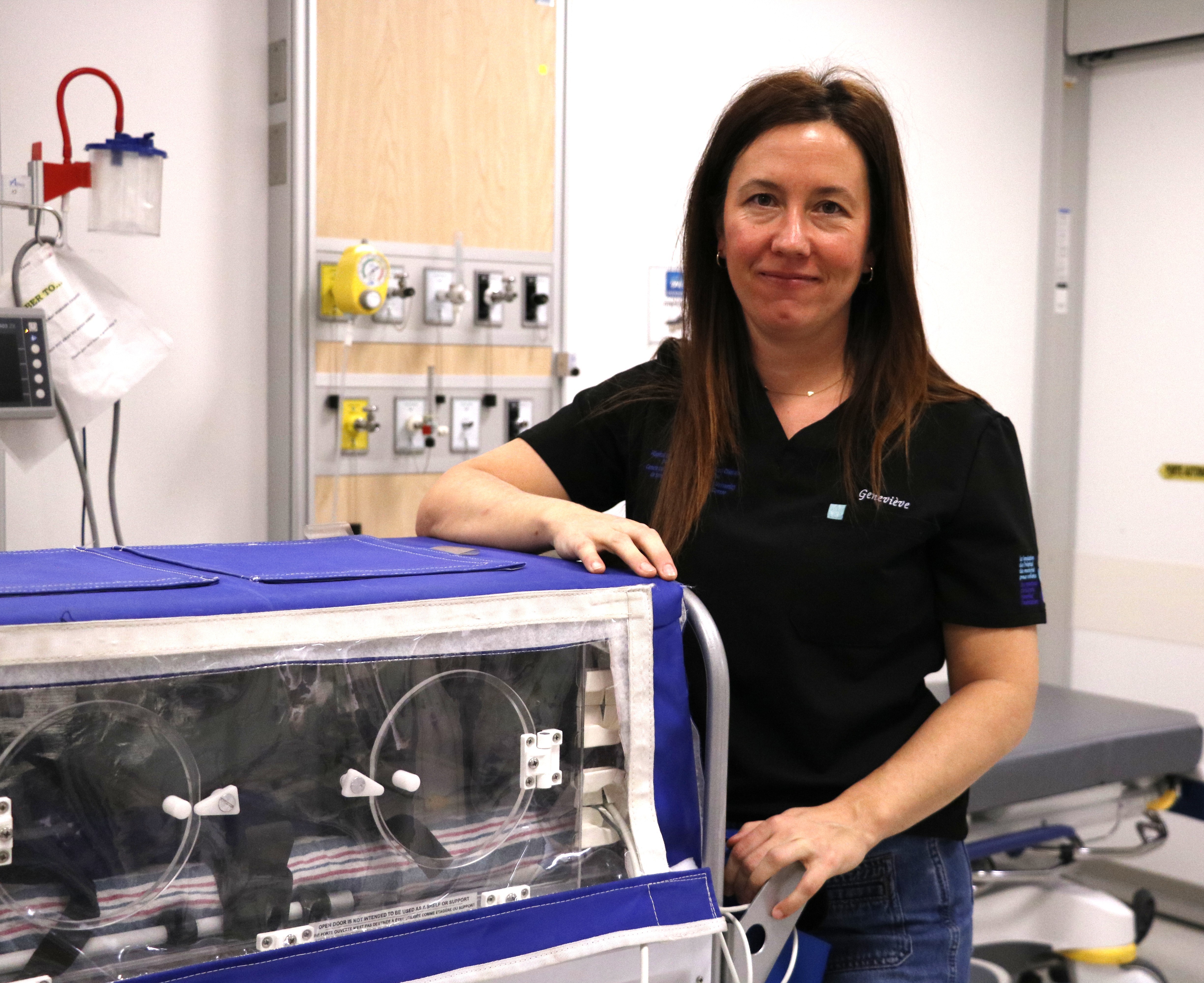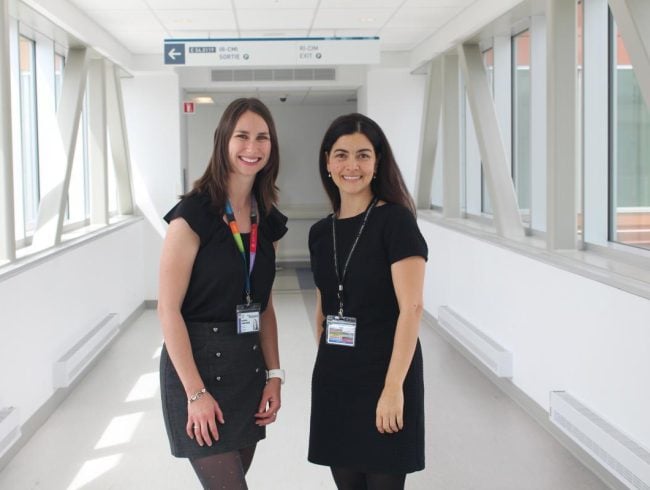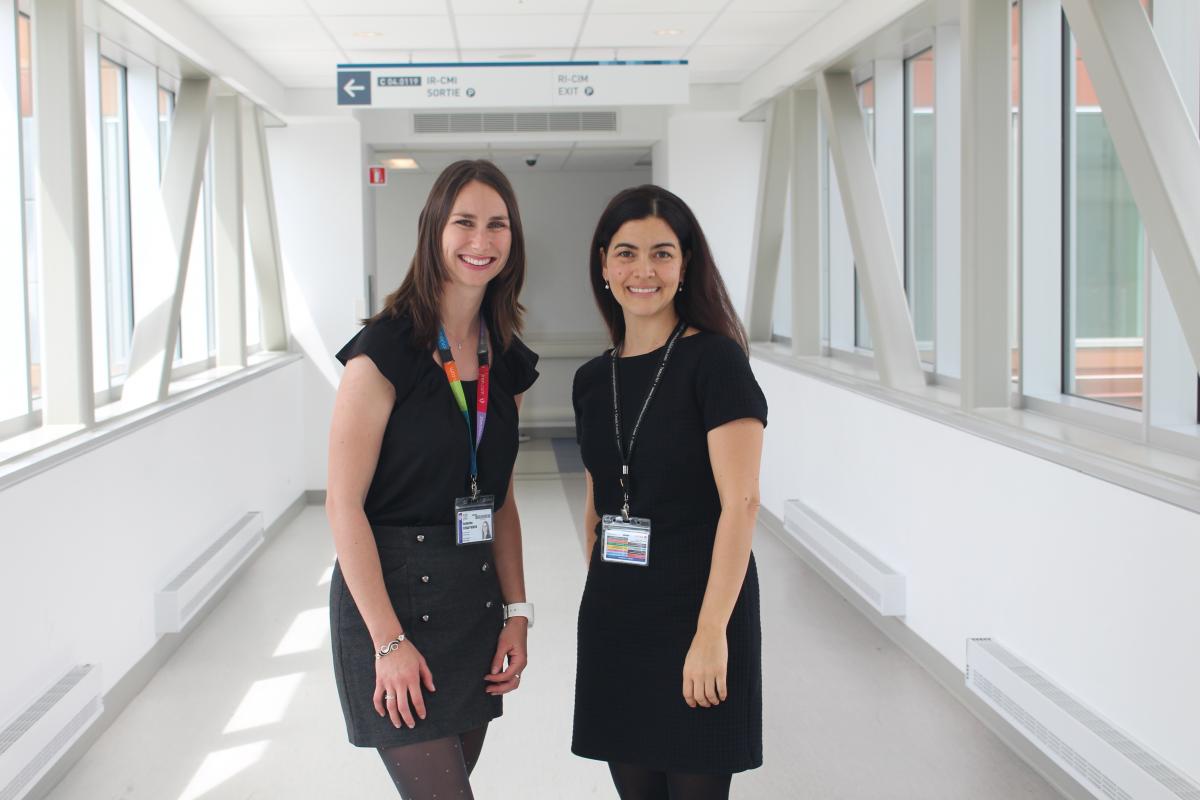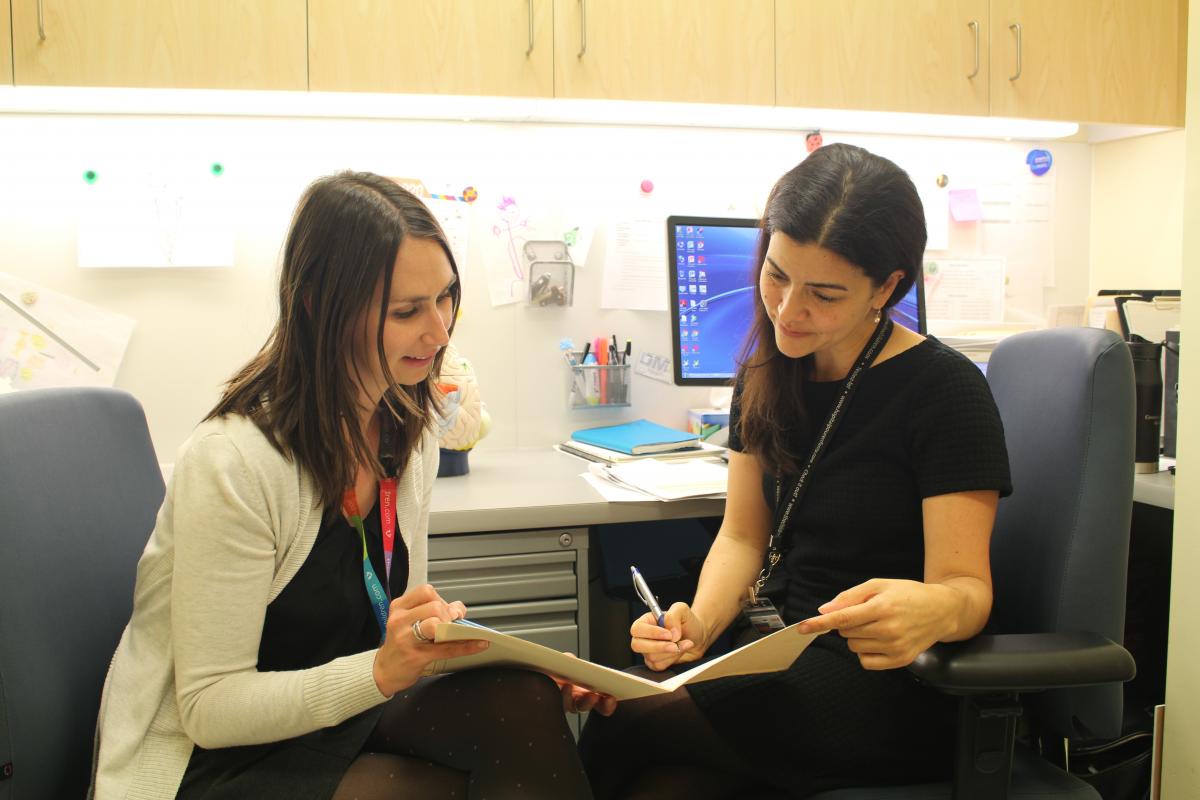
Celebrating Critical Care Transport Nurses at the MCH
18 February 2026
Rise in respiratory infections and measles outbreak: important infection prevention measures at the Montreal Children’s Hospital.
Read moreWelcome to the Montreal Children's Hospital

19 June 2019

Recovering from a concussion is a steady process that requires time, rest and patience for kids of all ages. But for some patients and families, the recovery process can take longer, and require more mental health support. “In the majority of cases, a gradual return to regular activities will allow a patient to recover fully within about a month,” says child psychologist Dr. Catherine Serra-Poirier. “But in roughly 20% of cases seen at the Mild Traumatic Brain Injury (MTBI) Program, progress can stagnate and patients need psychotherapy and mental health support to get them back to their pre-concussion functioning.”
Concussions: more than physical injuries
Dr. Serra-Poirier and her colleagues Dr. Karine Gauthier and Dr. Maria Sufrategui work with a multidisciplinary team of health professionals who make up the Mild Traumatic Brain Injury Program at the Montreal Children’s Hospital. Their role is to support patients whose recovery from a concussion has been halted and investigate what psychological, cognitive and social factors might be affecting their progress.
“Some patients may have had anxiety before they experienced their head injury, or may have been depressed,” explains Dr. Karine Gauthier. “They may also have had pre-existing family or social problems that may be amplified now that they’re injured. Our role is to explore what major stressors are complicating their recovery and introduce tools that can help minimize and manage their impacts.”
These tools can range from weekly cognitive behavior or mentalization psychotherapy sessions to help talk through and understand difficult emotions. They can also involve teaching patients about relaxation methods and pain management strategies depending on the needs of each individual child. “We can work with patients to teach them new ways of managing thoughts as they relate to pain to diminish these symptoms,” says Dr. Gauthier. “In some cases, we can also make formal assessments regarding cognitive abilities that may be affected by an MTBI such as attention skills and processing speed, allowing patients to get the support they need as they face these new challenges.”
Working together towards a common goal
In all cases, a patient’s family is involved from the very beginning so that a child psychologist can get a sense of a patient’s lifestyle, family medical history, and family members can share in the goals of the proposed treatment plan.
“We get to spend a good hour and a half with families that first visit, and it provides us with a better understanding of what could be going on and how to move forward with a personalized plan of action,” says Dr. Serra-Poirier. For some patients, follow-up visits can be scheduled weekly and others can be made on a bi-weekly basis. At times, these visits can bring up issues that can lead to changes in the overall concussion treatment plan so that it’s better catered to a patient’s needs.
“We work as a team with the physiotherapist and trauma coordinator in order to align the psychological, cognitive and physical rehabilitation. Sometimes, this might include allowing the patient greater flexibility in their return to sport to improve their emotional well-being, which in turn could contribute to decrease the MTBI symptoms. Our work can also involve communicating with a patient’s school and relevant teachers to make recommendations to help the recovery and reduce the risk of chronicity. At times, we have to balance the risk of having a patient return to his or her activities too quickly with their mental health needs at the time,” explains Dr. Serra-Poirier.
Through regular sessions, patients build a bond of trust with their psychologist. The duration of their treatment can vary, but typically patients see a big improvement within 1 to 6 months of psychotherapy. Whenever more long-term follow-up is needed, Dr. Serra-Poirier and her colleagues ensure that patients are referred to the appropriate resources within their community. These can include referrals to CLSCs, other mental health institutions within the healthcare network, or psychiatrists and psychologists as needed.
 Helping families navigate a difficult period
Helping families navigate a difficult period
“The best part of our work is when a patient come back saying they feel better after several weeks of learning to confront and deal with difficult emotions,” says Catherine. “I sometimes even receive Christmas cards from families. That’s what it’s all about. I’m honoured to be able to help families return to their everyday lives.”
Dr. Gauthier agrees, adding that some of the tools used in psychotherapy can be adopted by patients as lifelong coping methods to help them manage future stressful events and transitions. “We’re lucky in that we’re witnesses to such a measurable impact in our patients,” she says. “Slowly but surely, we see them begin to participate in exams at school, return to sports and get back to their daily lives before any of this happened. They walk away feeling validated, reassured and listened to. I feel honored that they have trusted me in their journey.”